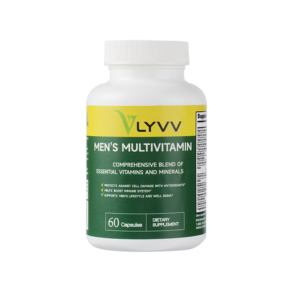Precision Nutrition: A New Era in Health !
 Gene-Related Nutritional Deficiencies: Unlocking the Secrets of Personalized Health
Gene-Related Nutritional Deficiencies: Unlocking the Secrets of Personalized Health
In recent years, an exciting discovery has transformed the way we think about health and nutrition: our genes may hold the key to understanding why some people thrive on certain diets while others struggle, despite eating the same foods. This emerging science, known as nutrigenetics and nutrigenomics, reveals how genetic variations influence the way our bodies absorb, metabolize, and utilize nutrients. In other words, nutrition is no longer a one-size-fits-all equation.
For decades, nutritional deficiencies were viewed primarily as consequences of poor diets, malabsorption diseases, or socioeconomic factors. However, we now know that for many individuals, genetic differences quietly influence nutritional status behind the scenes. Small variations in DNA, known as polymorphisms, can impair the body’s ability to process key vitamins, minerals, and macronutrients — leading to hidden deficiencies that diet alone cannot fix.
When Genes and Nutrition Collide
Take folate, a B-vitamin essential for DNA synthesis and cellular repair. Variations in the MTHFR gene, such as the common C677T polymorphism, can significantly reduce the body’s ability to convert dietary folate into its active form. Individuals with these variants are at increased risk for elevated homocysteine levels, a known factor in heart disease, neural tube defects, and some cancers. For these individuals, even a folate-rich diet may not be enough without targeted supplementation of methylated folate.
 Vitamin D metabolism provides another example. Variations in the VDR gene can lower the effectiveness of vitamin D receptors, leaving individuals susceptible to bone diseases like osteoporosis, immune system dysfunctions, and even cardiovascular issues — even if their sun exposure and dietary intake appear sufficient. Meanwhile, mutations in the HFE gene, which regulates iron absorption, can swing the balance dramatically: some people absorb too much iron, risking hemochromatosis, while others struggle with iron-deficiency anemia.
Vitamin D metabolism provides another example. Variations in the VDR gene can lower the effectiveness of vitamin D receptors, leaving individuals susceptible to bone diseases like osteoporosis, immune system dysfunctions, and even cardiovascular issues — even if their sun exposure and dietary intake appear sufficient. Meanwhile, mutations in the HFE gene, which regulates iron absorption, can swing the balance dramatically: some people absorb too much iron, risking hemochromatosis, while others struggle with iron-deficiency anemia.
These genetic influences extend beyond micronutrients. Variations in the LCT gene, responsible for producing the enzyme lactase, explain why many adults worldwide develop lactose intolerance, leading to symptoms like bloating and diarrhea — and inadvertently reducing their intake of calcium and vitamin D from dairy sources. Similarly, some individuals carry polymorphisms in the BCO1 gene, impairing the conversion of beta-carotene from vegetables into active vitamin A, putting them at greater risk for vision problems and weakened immunity.
What emerges is a simple but powerful truth: your genes shape your relationship with food in profound ways.
The Rise of Personalized Genetic Testing
Thanks to advances in genetic testing technology, individuals can now access detailed insights into their nutrient-processing genes with a simple saliva sample or cheek swab. Specialized laboratories analyze DNA for known variants linked to nutrient metabolism, compiling reports that highlight personal strengths and vulnerabilities.
A typical nutrigenetic report might reveal, for example, a reduced capacity to process folate efficiently, an increased need for vitamin D supplementation, or a tendency to develop iron deficiency under certain conditions. Rather than offering vague advice like “eat more greens,” such reports can suggest concrete actions: selecting specific supplement forms, adjusting dosages, or prioritizing certain food sources based on genetic needs.
It’s important to recognize that genetic testing reveals predispositions, not certainties. Lifestyle factors, environment, and broader dietary patterns still play major roles in health outcomes. However, genetic knowledge empowers individuals to make smarter, earlier, and more effective decisions about their nutrition and wellness strategies.
Personalized Nutrition: A New Era in Health
Imagine a world where your nutrition plan is tailored not only to your lifestyle and preferences but also to your DNA. Public health experts predict that in the near future, routine genetic testing may become a standard part of preventive healthcare. Individuals at risk for vitamin D deficiencies, iron imbalances, or poor folate metabolism could be identified early and given personalized dietary strategies before disease ever develops.
Some workplaces and schools are even exploring ways to incorporate genetic screenings into broader wellness programs. On a public health level, governments could design better-targeted interventions, replacing generalized nutrition guidelines with more nuanced, genetically-informed recommendations.
Precision nutrition also promises to refine sports performance, cognitive health optimization, and longevity strategies. Athletes could tailor their recovery diets to maximize genetic advantages, while older adults could receive individualized support to maintain bone density and cognitive resilience.
The future of nutrition is no longer just about what is on your plate — it is about what is in your DNA.
Your Genes Are a Road map, Not a Destiny
map, Not a Destiny
It’s crucial to remember that while your genes provide important clues, they are not your destiny. A genetic predisposition to vitamin D deficiency, for example, does not mean that bone loss is inevitable. Instead, it offers an opportunity to take preventive action through diet, supplementation, lifestyle adjustments, and regular monitoring.
By combining genetic insights with mindful nutrition, exercise, and healthcare, individuals can often overcome their genetic disadvantages and build vibrant, resilient health across a lifetime.
The intersection of genetics and nutrition is not about labeling people with risk factors; it is about empowering individuals to make informed, proactive choices that reflect the deepest layers of who they are. Personalized nutrition is more than a trend — it is the next evolution of how we understand and care for the human body.
References
Bouwman, J. J., et al. (2020). “Genetic variants in nutrient metabolism and their implications for health and disease.” Frontiers in Genetics.
Bailey, L. B. (2009). “Folic acid: A key role in the prevention of neural tube defects and the importance of genetics.” Journal of Nutrition.
Engelman, C. D., et al. (2011). “Genetic variants of the vitamin D receptor gene and their impact on disease outcomes.” Journal of Steroid Biochemistry and Molecular Biology
Koury, M. J., et al. (2006). “Genetic determinants of iron deficiency and iron overload.” Hematology/Oncology Clinics of North America.
Smith, A. D., et al. (2007). “Genetics of vitamin B12 metabolism and deficiency.” Clinical Nutrition.
Hambidge, K. M. (2000). “Zinc deficiency: A special challenge.” The American Journal of Clinical Nutrition.
Miles, E. A., et al. (2004). “Genetic variation in fatty acid metabolism and its impact on health outcomes.” Prostaglandins, Leukotrienes, and Essential Fatty Acids.
Disclaimer: This information is for educational purposes only and is not a substitute for professional medical advice or diagnosis.
Premium Ingredients and Best-Optimized Blends

• Increase Metabolism
• Burn Fat Faster
• Reduces Appetite
• Decrease Blood Sugar
• Increase Adiponectin Levels

• Contain Phytoestrogens
• Increase Blood Flow
• Improve Sexual Function
• Reduce Fatigue and Arthritic Pain

• Contain Hydroxycitric Acid
• Control Appetite
• Reduce Abdominal Fat Accumulation
• Booster Metabolism

• Contain Chlorogenic Acid and Caffeine
• Boost Fat Metabolism
• Control Appetite
• Lower Cholesterol and Triglycerides Levels
© 2025 Lyvv Science, Inc. All Rights Reserved.
Cart
-
×
 Raspberry Ketone Ultra
1 × $26.25
Raspberry Ketone Ultra
1 × $26.25 -
×
 Garcinia Cambogia Advanced
1 × $22.75
Garcinia Cambogia Advanced
1 × $22.75
Subtotal: $49.00
